May 2, 2024 | 20:38 GMT +7
May 2, 2024 | 20:38 GMT +7
Hotline: 0913.378.918
May 2, 2024 | 20:38 GMT +7
Hotline: 0913.378.918
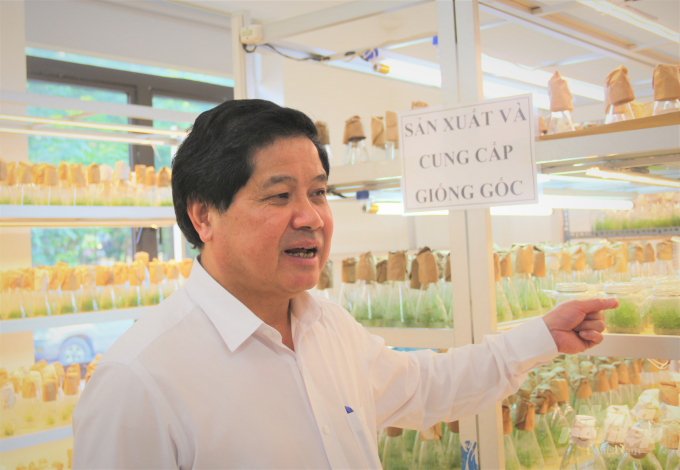
Deputy Minister of Agriculture and Rural Development Le Quoc Doanh affirmed that the forestry sector is now full of potential, with tree breeding as a key factor. Photo: Pham Hieu.
In agricultural and forestry production in general, varieties play a very critical role in determining the yield and quality of crops. In the forestry sector in particular, variety plays an even more important role because technical measures such as fertilization and watering has limited impact.
Fast-growing trees such as acacia, eucalyptus, and pine are an important part of the current forest planting structure. As a major source of timber, the area of these trees will reach about 2.7 million hectares by 2018, accounting for about 65-70% of the total planted forest area of the country.
For many years, attention has been paid to research on these species. New varieties have been recognized and put in production, so the productivity of planted forests has improved significantly, from less than 10m3/ha/year in the period before 2000 - 2010 to 15-20m3/ha/year in the period 2015-2020.
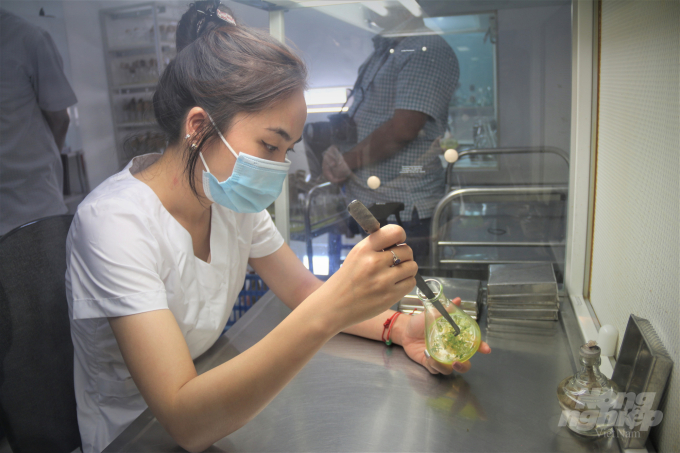
Variety plays a decisive role in the yield and quality of crops in the forestry sector. Photo: Pham Hieu.
The Forest Tree Improvement and Biotechnology Research Institute has focused on breeding key fast-growing tree species. In addition to the selection of varieties according to growth criteria, properties related to furniture production such as density, shrinkage, static flexural strength, have aslo been paid attention to. In addition, research on resistance to pests and diseases and adverse environmental conditions has also been promoted.
The Forest Tree Improvement and Biotechnology Research Institute has selected and recognized 80 varieties of acacia, eucalyptus and macadamia species. Besides, the Institute has built more than 60 hectares of acacia and eucalyptus seed orchards in many ecological regions across the country.
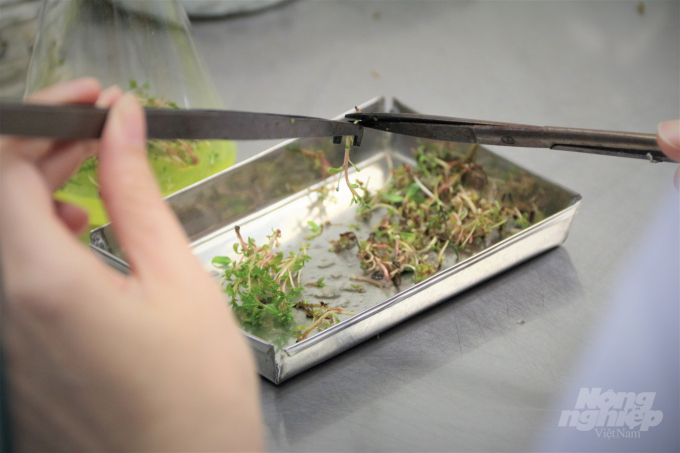
The Forest Tree Improvement and Biotechnology Research Institute has selected and created 80 varieties of Acacia, Eucalyptus and Macadamia species recognized by the Ministry of Agriculture and Rural Development. Photo: Pham Hieu.
From 2010 to the present, the Forest Tree Improvement and Biotechnology Research Institute has transferred seeds and tissue culture method for 14 hatcheries across the country. The transfer is carried out in a full package, including the provision of original seedlings and training at the Institute and at the production facility.
With the efforts of the Institute and production facilities, training classes have been carried out successfully. After being trained, they have mastered the technology and carried out seed production in large scale.
Regarding seed production, in the period 2010 - 2020, the Institute has produced and provided more than 4,300 original seedlings and more than 1 million original seedlings of recognized varieties of acacia and eucalyptus, thereby contributing to the production of more than 85 million tissue seedlings and 150 million cutting seedlings.
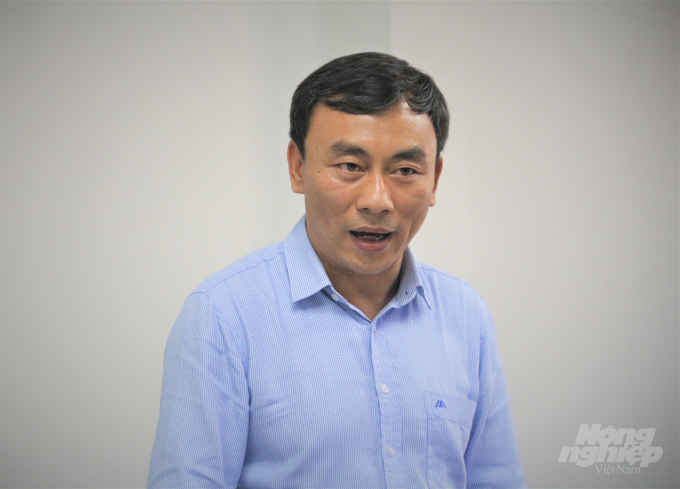
Mr. Nguyen Duc Kien, Director of the Forest Tree Improvement and Biotechnology Research Institute. Photo: Pham Hieu.
Mr. Nguyen Duc Kien, Director of the Forest Tree Improvement and Biotechnology Research Institute proposed to the Ministry of Agriculture and Rural Development the project "Developing forest tree varieties for economic afforestation."
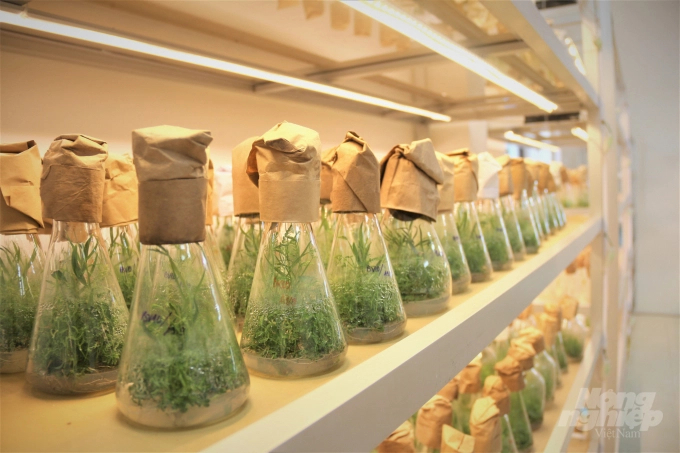
The demand for planted forests is currently very high: 420 million trees/year. Photo: Pham Hieu.
Deputy Minister of Agriculture and Rural Development Le Quoc Doanh: “the Forestry sector is full of potential, not only economically, but also socially and environmentally. Currently, the demand for production of planted forests is very high, with 420 million trees/year. Therefore, it needs to be well organized, promoting the economy and people's lives, especially those in the midland and mountainous areas who are attached to the forest profession.”
Author: Pham Hieu. Translated by Meagan Phan. Edited by Duc Huy.
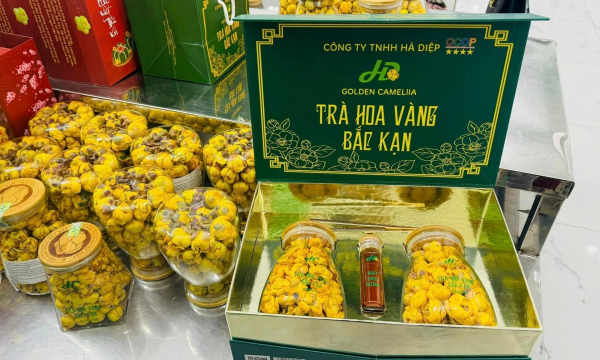
(VAN) In 2024, Bac Kan province has acquired investments for 10 projects in the agriculture and forestry sectors, with a particular focus on the production and processing of medicinal plants.
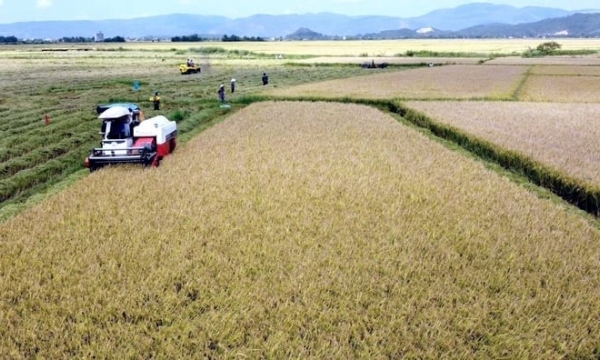
(VAN) Phu Yen is one of the localities with the conditions to develop high-tech agriculture, seafood processing and aquaculture.
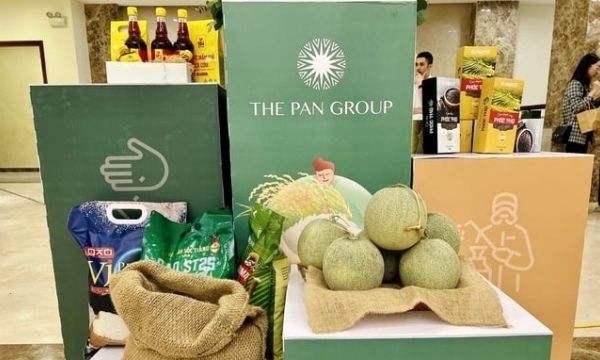
(VAN) In response to climate change concerns and economic challenges, PAN Group sets target of 12% revenue growth with natural agriculture solutions.
/2024/04/26/4910-3-173953_784.jpg)
(VAN) The Nestlé Net Zero Roadmap launched in 2020 has helped the Group transform its business operations and implement measures to reduce greenhouse gas emissions in all fields.
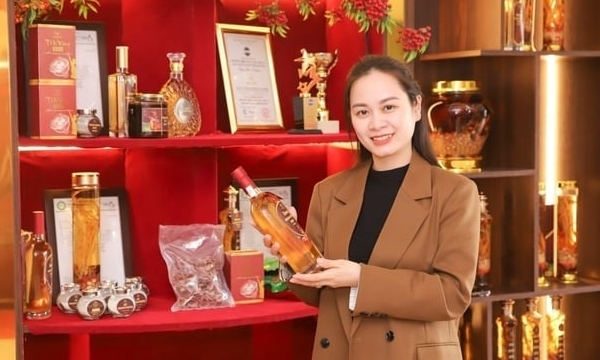
(VAN) Deer antler velvet is known as one of the 'Four Great Traditional Medicines'; however, the value-added aspect from the deep processing of deer velvet is currently overlooked.

(VAN) The three main factors causing the lack of sustainability in the growth of e-commerce in Vietnam are digital divide, digital workforce, and environment
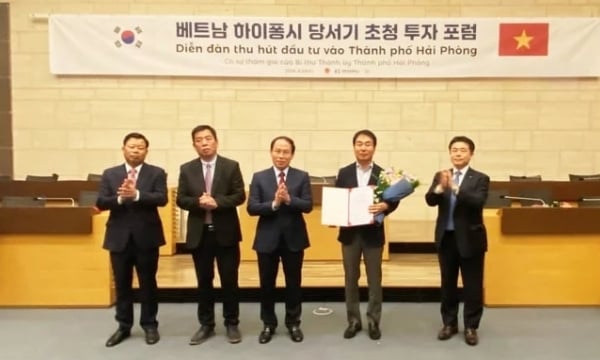
(VAN) South Korean enterprises have increased their investment capital in the city of Hai Phong by nearly VND 400 million following a series of meetings.